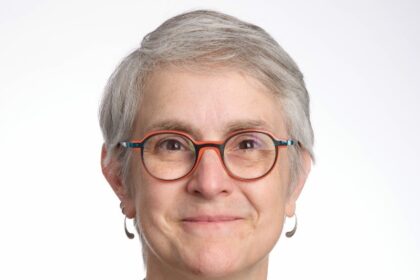Seattle startup Aarden AI is coming out of stealth with $4 million from investors and an AI platform that helps landowners research and navigate deals with developers eager to build data centers, clean energy installations, housing and other uses.
While there have long been tools to support developers, landowners have been largely on their own to evaluate and optimize deals so they’re not taken advantage of or end up partnering with untrustworthy organizations, said Aarden CEO Danan Margason.
“And so landowners have become increasingly skeptical of working with developers, even when opportunities exist,” he said.
Big tech companies are scrambling to build data centers to meet expanding AI needs, creating urgent demand for suitable sites. At the same time, the push for clean energy — both to power those data centers and support broader efforts to move away from fossil fuels — has developers actively seeking landowners.
The company’s current customers are businesses and entities that own and manage large swaths of timberland. They know their sector well, Margason said, but they don’t know how to accurately calculate the potential for these alternate land uses.
Aarden’s technology creates detailed maps with information that includes elevation, soil type, energy transmission infrastructure, environmental and wildlife habitat features, solar intensity and other factors. It estimates financial returns for various land uses and expedites the due diligence process. And it helps manage the legal aspects of a transaction.
The platform’s AI foundation allows users to ask questions and dig more deeply into the information as they explore different options.

“As an industry, land has been stuck with multi-decade assumptions and Excel models that rarely consider alternative uses. Despite that, it’s been an amazing asset class for those that can access it, consistently beating the public markets,” said Ben Eidelson, general partner of Stepchange, a climate-focused fund.
Stepchange also invested in Aarden’s initial round, which was led by Planeteer and included Founders’ Co-op, KDX, Superorganism and Madrona.
Aarden charges subscription fees for landowners using the platform. Future revenue options include usage-based fees that are higher for customers running more complex scenarios and models. The company aims to facilitate matches for the parties — generating revenue for helping negotiate successful transactions with developers.
Other companies are creating tools for assessing and researching properties, including Acres.com and Land id, but don’t appear to be centered on landowners’ needs.
The startup launched earlier this year and has a five person team:
- Co-founder Margason was chief product officer at Carbon Direct, a company supporting corporate partners in reaching their climate goals, and worked for Seattle marketing startup Tune.
- Co-founder head of applied science Ben Hudson was an applied scientist for the online real estate heavyweight Zillow and Homebound.
- Founding engineer Jasper Croome previously worked for Carbon Direct, Amazon and others.
- Strategy and operations lead Isabella Todora is a former director at Climate Neutral.
- Engineer Steven Yee also worked at Carbon Direct and with Seattle companies Convoy, Porch, Footprint-Finder and others.
The startup and many of its investors have a strong connection to environmental and climate concerns, but converting forests to data centers or even solar farms doesn’t obviously align with those ideals. So how does the team square those concerns?
Margason said the question gets a lot of attention internally, and their goal is to support responsible development — which the timberland owners appreciate.
“If data centers are going to get built, if homes are going to get built, how do we help provide the right layers of information to inform not just the economic outputs, but also the environmental outputs,” he said, “and that’ll hopefully drive better decision making.”
Read the full article here









